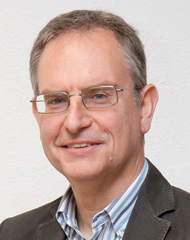Teaching science without limits: "YouTube is an extraordinary tool for learning".
Javier Novo, professor of Genetics at the University of Navarra, has reached more than one million views on his YouTube channel.

PHOTO: Manuel Castells
Javier Novo, professor of Genetics at the University of Navarra, has reached more than one million views on his YouTube channel, a platform he has been using for ten years for universityteaching and scientific knowledge dissemination .
Professor Novo's channel, created in December 2010, has received a total of 1,008,061 views, of which 57.5% are women compared to 42.5% men. The predominant age range of visitors is between 18 and 24 years old (70.7%) followed by an audience between 25 and 34 years old (26.8%). The origin of the visits to this channel is varied: Mexico (21.8%); Spain (20.3%), Colombia (11%), Argentina (9.1%), Chile (6.5%).
Javier Novo opened the channel in December 2010 with a purpose professor. In total there are 149 videos in which Professor Novo has spoken to his followers about Science, specifically those subjects in which he is an expert and on which he teaches class in the School of Sciences of the University of Navarra: Genetics Human, Bioinformatics, Genomics and Evolution. The most viewed videos deal with DNA sequencing, meiosis, the FISH technique, stem cell types or tyrosine kinase receptor activation.
This social network has helped Novo to dialogue with different audiences about science, especially students from Genetics who come from different parts of the world. "They ask me for clarification on some topics or concepts and sometimes we have had interesting conversations thanks to which I realized that something was not well explained, which led me to reformulate the video". In a lower percentage, the professor points out, "other people interact, sometimes asking questions or simply commenting that they liked it".
The future of this channel, says its owner, is to update the existing material and add videos on new topics from Genetics since "the problem in these fields is that the information becomes outdated in a few years".
For Javier Novo the employment of social networks for the teaching depends on each professor, on the possibilities that each teacher interprets that can improve their experience and student learning. "With patience and time it is easy to implement them little by little. You have to lose your fear. Novo does not advise forcing the presence in social networks, although in his experience "it is an extraordinary tool for learning".
Along the same lines, Novo warns of the complexity that immersion in social networks entails for scientists and recommends evaluating the possibilities, benefits and consequences of knowledge dissemination in these media. "I would not be obsessed with visibility, because the networks are a world in which an academic will rarely become a media phenomenon," adds Novo.





